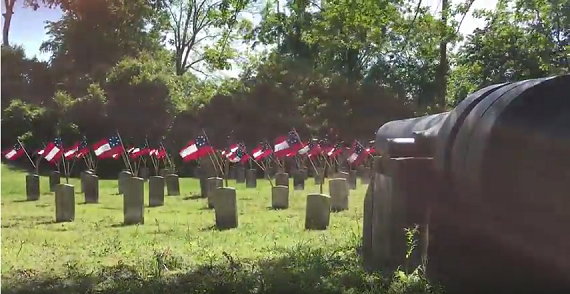
The time may come when it will be realized that … a peaceful separation would have been vastly better for the American people than the bloody war which the North fought for the preservation of the Union by force of arms. The credit or blame for what happened belongs to Abraham Lincoln. It was he who defeated the compromise efforts which might otherwise have prevented the dreadful blood-bath of the sixties … It was Lincoln who, instead of avoiding war by withdrawing the Union garrison from Fort Sumter, used Fort Sumter to unite the Northern people in favor of a war against the South …The bloody conflict of 1861 to 1865 is often called the Civil War, but most Southerners regarded it as a war for independence and self-government. Many if not most Confederate soldiers and officers who fought in it had fathers or grandfathers who served in the first American war of independence, and they were mindful of their heritage. Southerners were proud of the part their ancestors had played in the American Revolution, and when the seceded states formed a confederacy, they adopted many of the images and symbols of that time. The banner which hung over the table where the South Carolina Ordinance of Secession was signed bore the image of a rattlesnake poised to strike (as appeared on the Gadsden flag), and a palmetto tree (symbolic of the patriot victory at Fort Sullivan in 1776). After the signing of the ordinance, silver seals designed by Arthur Middleton and William Henry Drayton, noted Revolutionary patriots of South Carolina, were used to seal the document. The Confederate States of America put an image of George Washington on its national seal, and Washington’s image, along with that of another Revolutionary patriot, Francis Marion (the “Swamp Fox” of South Carolina), also appeared on Confederate currency.
More @ The Abbeville Institute

The quote is an effective reply to the poorly educated who simply state "Lincoln was a great president. Learn it." Even better to those who swallow the swill that the war was one of discontentment about the 1860 election and the desire of the southern states to retain slavery.
ReplyDeleteWhat is the origin of the quote, please?
Thanks and Herbert Ravenel Sass, a 20th century South Carolina author. http://www.scencyclopedia.org/sce/entries/sass-herbert-ravenel/
Delete